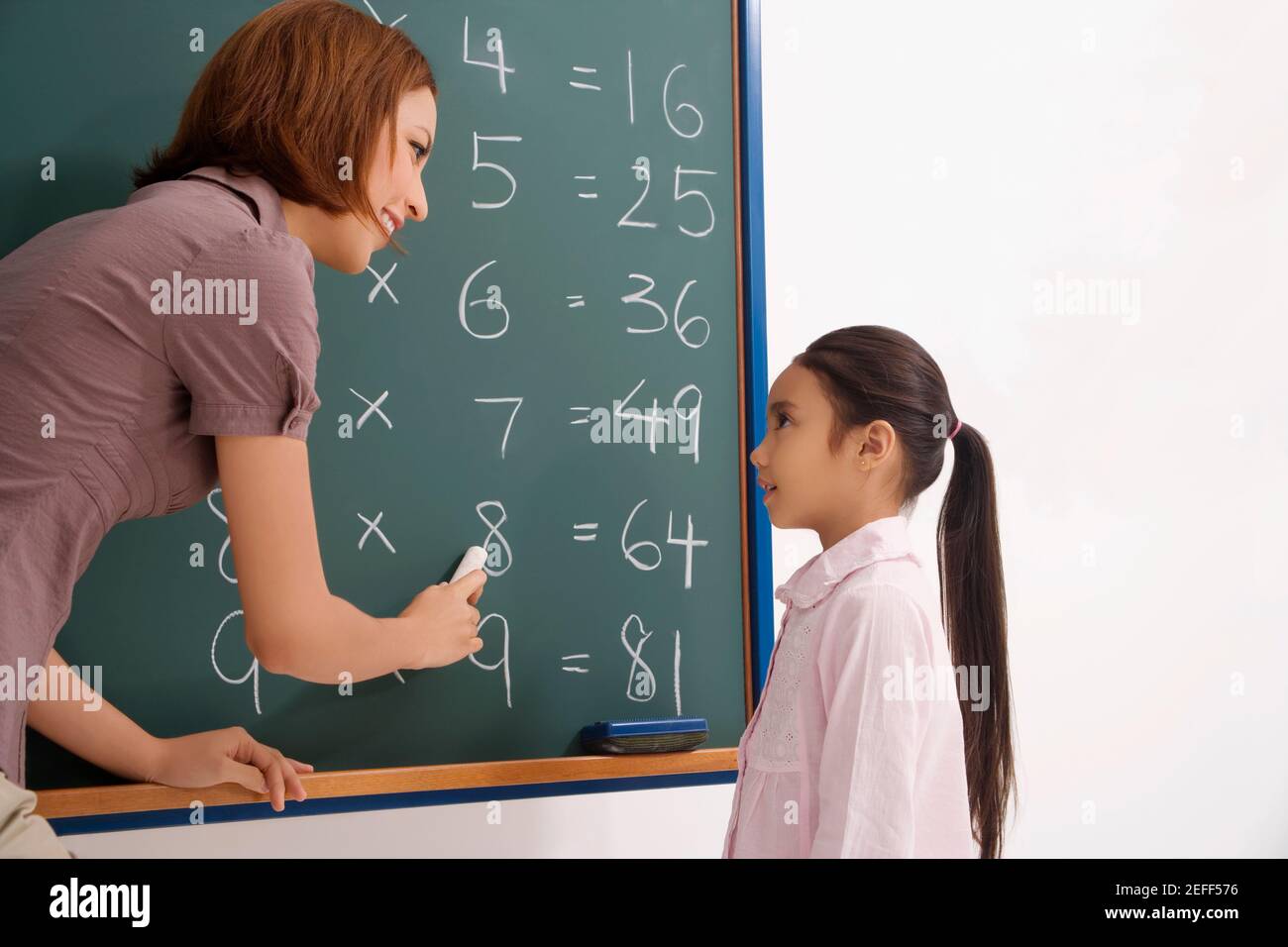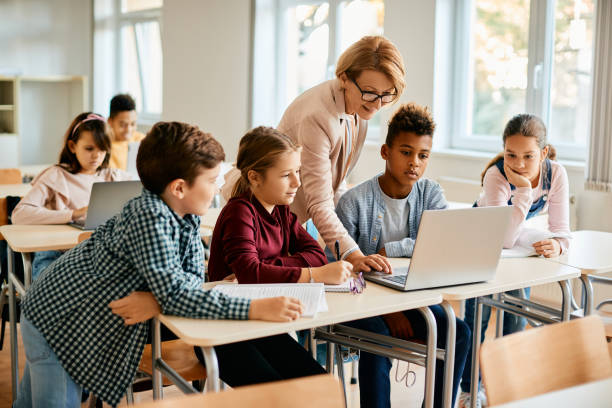Top Primary Science Tuition Singapore to Help Your Child Excel
Top Primary Science Tuition Singapore to Help Your Child Excel
Blog Article
Discovering the Different Mentor Strategies in Key Scientific Research Education And Learning Today
Inquiry-based discovering, hands-on experiments, and the combination of innovation are redefining exactly how teachers involve young minds. Additionally, collaborative strategies and differentiated instruction are being utilized to provide to the varied demands of trainees, enhancing both involvement and understanding.
Inquiry-Based Discovering
Inquiry-Based Discovering (IBL) is a pedagogical method that urges students to explore scientific concepts through doubting, investigation, and hands-on trial and error. This method emphasizes the duty of pupils as energetic individuals in their learning, advertising critical reasoning and problem-solving skills. By involving with real-world inquiries, students end up being inspired and curious, which boosts their understanding of clinical concepts.
In IBL, educators function as facilitators, guiding pupils as they browse their queries as opposed to supplying information straight. This student-centered strategy enables differentiation, accommodating numerous discovering styles and paces. Trainees create abilities in creating hypotheses, making experiments, and assessing data, which are crucial for scientific proficiency.
Furthermore, IBL promotes cooperation amongst students, motivating them to share concepts and searchings for. This cumulative questions promotes social skills and a sense of neighborhood within the class. Additionally, the procedure of questions urges resilience, as students learn to welcome failing as a stepping rock towards understanding.
Hands-On Experiments
Hands-on experiments are a vital element of efficient science education and learning, matching the concepts of inquiry-based discovering. These experiments allow students to involve directly with clinical concepts, fostering a deeper understanding with experiential knowing. By manipulating products and observing end results, young learners can realize abstract theories in tangible methods.
Such activities promote vital thinking and analytical skills, as pupils assume results, conduct experiments, and examine outcomes. This procedure encourages them to ask concerns, refine their understanding, and create a clinical mindset. Hands-on experiments can be tailored to diverse learning designs, ensuring that all students have the possibility to involve meaningfully with the material.
Furthermore, hands-on experiments frequently encourage collaboration amongst peers, advertising synergy and interaction abilities. Functioning in groups allows trainees to share concepts, go over searchings for, and pick up from one an additional, which enhances their general educational experience.
Integrating hands-on experiments into the main scientific research educational program not just enriches the learning atmosphere yet also cultivates a lifelong rate of interest in scientific research. By proactively getting involved in their education and learning, trainees are a lot more likely to establish an enthusiasm for clinical query that prolongs past the class.

Modern Technology Integration
Incorporating innovation into key science education and learning has come to be increasingly important in promoting student engagement and enhancing learning outcomes. The use of electronic devices, such as interactive simulations, digital laboratories, and academic software program, supplies trainees with chances to check out clinical principles in cutting-edge means. These sources promote a deeper understanding of complex topics by permitting students to envision and manipulate variables that would certainly be not practical in a typical classroom setup.
Moreover, modern technology combination encourages customized discovering experiences. Students can proceed at their own pace, reviewing difficult concepts via multimedia resources, which provide to different knowing styles. This adaptability not only supports individual development but additionally cultivates a feeling of autonomy in students.
Additionally, technology functions as a bridge to real-world scientific research, connecting trainees with current study and specialist payments. Accessibility to on-line databases and scientific journals widens trainees' point of views on clinical inquiry and promotes vital thinking skills.
Collaborative Discovering
Collaborative discovering plays a vital function in key scientific research education and learning by cultivating synergy and communication skills amongst students. This technique urges learners to interact, share understanding, and participate in analytic, which enhances their understanding of clinical concepts. By taking part in team tasks, pupils discover to express their concepts, pay attention to varied point of views, and bargain solutions, all of which are Going Here necessary abilities in both academic and real-world contexts.

Research shows that collective learning can result in raised inspiration and engagement in science topics, as pupils find satisfaction in common experiences (primary science tuition Singapore). In addition, this approach prepares students for future joint ventures, outfitting them with the skills required for efficient synergy in college and expert atmospheres. Inevitably, embracing collaborative understanding in main science education can dramatically improve the knowing experience and advertise a deeper understanding of scientific questions
Distinguished Guideline

Separated guideline can manifest in various means, such as differing the material, procedures, or items of discovering. For instance, instructors may utilize tiered assignments that supply varying degrees of complexity, permitting students to operate at their respective preparedness levels. Furthermore, flexible organizing strategies can assist in collaboration amongst trainees with different abilities, promoting peer understanding.
Evaluation plays an essential duty in this strategy, as it informs instruction and aids teachers understand each pupil's distinct needs. Developmental evaluations, such as observations my sources and tests, can guide educators in adjusting their strategies to improve discovering outcomes. primary science tuition Singapore. Inevitably, by implementing separated instruction in key scientific research education and learning, teachers can cultivate a much more fair and effective learning environment, equipping all pupils to reach their full possibility in comprehending clinical phenomena
Final Thought
In recap, the diverse mentor methods in primary science education and learning, including inquiry-based knowing, hands-on experiments, technology assimilation, collaborative knowing, and set apart guideline, jointly add to a more efficient understanding environment. These methods promote critical thinking, analytical abilities, and a deeper comprehension of scientific ideas. By applying these strategies, educators can create encouraging and interesting class that attend to the different demands of students, inevitably promoting a lifelong interest in scientific research and enhancing scholastic success.
Inquiry-Based Knowing (IBL) is a pedagogical technique that motivates pupils to discover clinical ideas with doubting, examination, and hands-on testing.Collaborative knowing plays an important role in key scientific research education and learning by promoting team effort and communication abilities amongst trainees.Research study suggests that collective knowing can lead to increased inspiration and involvement in scientific research subjects, as pupils locate satisfaction in common experiences.In promoting an inclusive knowing environment, differentiated instruction arises as a crucial strategy to accommodate the varied requirements and capabilities of pupils in main science education and learning. Ultimately, by executing distinguished instruction in key scientific research education, educators can grow a much more equitable you could try here and efficient learning environment, equipping all trainees to reach their complete potential in comprehending scientific phenomena.
Report this page